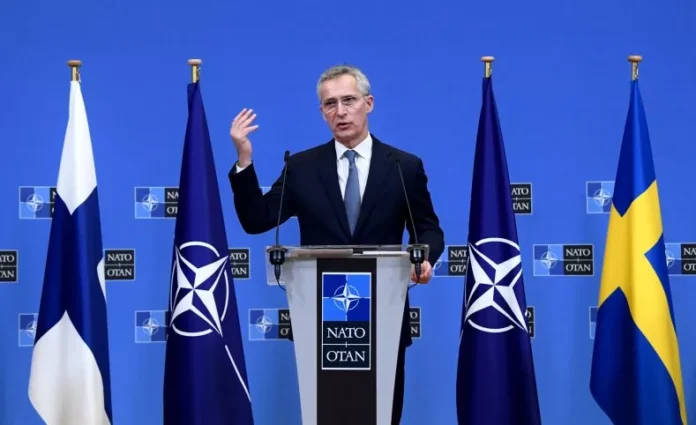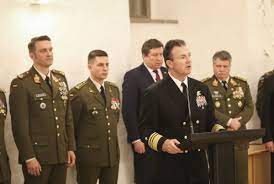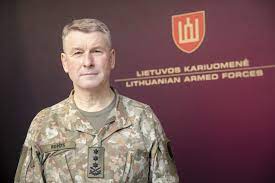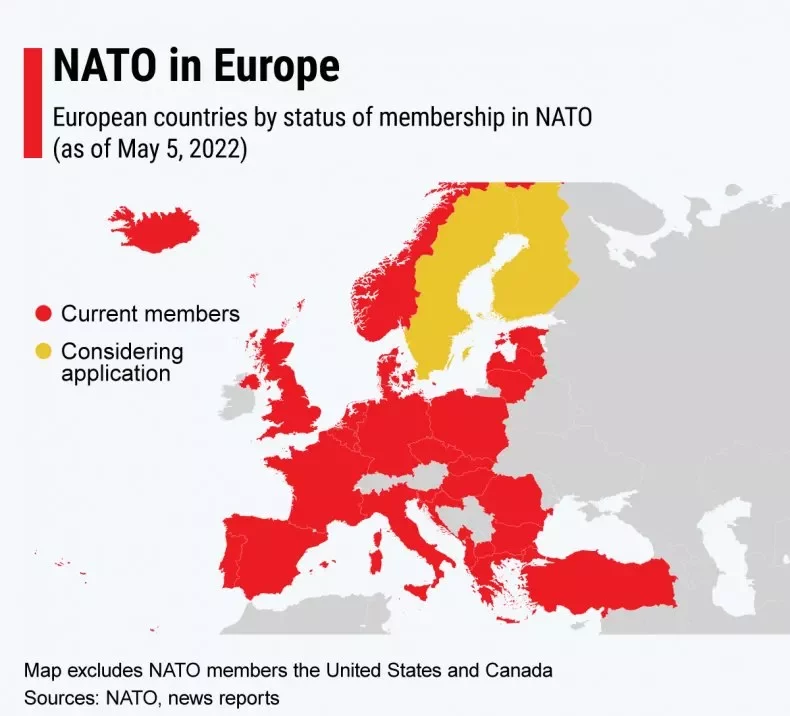
Scandinavian countries set to join

On May 12, Colonel Mindaugas Mazonas, commander of Lithuania’s Special Operations Forces, said that more NATO countries are planning to send special forces to Lithuania. The countries expected to have a permanent presence are “very similar” to the composition of the NATO battalion in Lithuania.
Germany now leads the NATO Forward Presence Battlegroup in Lithuania, which includes troops from the Netherlands, Norway, Belgium, France, the Czech Republic, Croatia, Luxembourg and Iceland. Chief of Lithuania’s armed forces Lieutenant General Valdemaras Rupšys also said special forces units from allied countries might stay in Lithuania after the current drills, for either temporary or long-term deployment.

Finnish President Sauli Niinisto and Prime Minister Sanna Marin said this week that “Finland must apply for NATO membership without delay” and the decision could be made “within the next few days”.
According to Rupšys, if Finland and Sweden were to join the alliance, that would greatly strengthen the region by making the Baltic Sea “almost an inner lake of NATO”. “From an operational perspective, in terms of our defensibility, especially looking at Article 5, I’d say this […] creates a problem for Russia,” he said.
Finland has maintained a policy of neutrality since World War Two, but political and public opinion in the country swung dramatically in favour of NATO membership since Russia invaded Ukraine. Finland must apply to join the Nato military alliance “without delay”, Finnish president Sauli Niinisto and prime minister Sanna Marin both said on May 12. “NATO membership would strengthen Finland’s security. As a member of NATO, Finland would strengthen the entire defence alliance”.

It is a historic policy shift, as a result of Russia’s invasion of Ukraine, for Finland which shares a 1,300 km border with Russia. Marin’s Social Democratic party will announce its decision on Saturday, with the five-party coalition government in Helsinki expected to follow on Sunday.
Finland’s foreign minister Pekka Haavisto named five issues behind his country’s decision to the European Parliament’s foreign affairs committee. The unpredictable behaviour of Russia, Moscow’s readiness to put pressure on neighbours, widespread talk in Russia of the use of unconventional weapons, including nuclear and chemical weapons (even though use of such weapons is prohibited by international agreements), are the key reasons why Finland decided to join NATO, he said.
The rules of warfare are not respected by Russia, Haavisto pointed out, and the existing European security architecture has not been working in this case, he added, as reasons for joining. The foreign minister noted that Russia’s aggression “altered the European and Finnish security environment”.
Finnish public support for joining NATO has risen to record numbers over recent months, with the latest poll by public broadcaster YLE showing 76 percent of Finns in favour, and only 12 percent against. Support for membership used to hover at only around 25 percent for years prior to the war in Ukraine. Finland fought the then Soviet Union during World War Two, repelling an attempted invasion in the “Winter War” of 1939-40. Finland lost around 10 percent of its territory in the subsequent peace agreement.
Lithuanian foreign minister Gabrielius Landsbergis welcomed Helsinki’s decision to join the Alliance, saying NATO is about to get stronger, and the Baltics are about to get safer.
EU Council president Charles Michel said it was a “historic step, once taken, that will greatly contribute to European security. With Russia waging war in #Ukraine it’s a powerful signal of deterrence.”
After Finland, Sweden is also expected to apply to join the 30-nation alliance in the coming days. Sweden’s ruling Social Democrats are expected to decide on May 15 whether to overturn decades of opposition to NATO membership.
Finland’s speedy decision started in March with the government ordering a security policy review and delivered a report for parliament to discuss in April, while also holding discussions with all parliamentary groups to secure backing.
NATO secretary general Jens Stoltenberg has previously said it would be possible to allow Finland and Sweden to join “quite quickly”, although that does mean 6 to 12 months. UK prime minister Boris Johnson on Wednesday signed agreements with both Sweden and Finland to come to their aid with military resources if they were attacked. EU Observer-LRT.lt





























